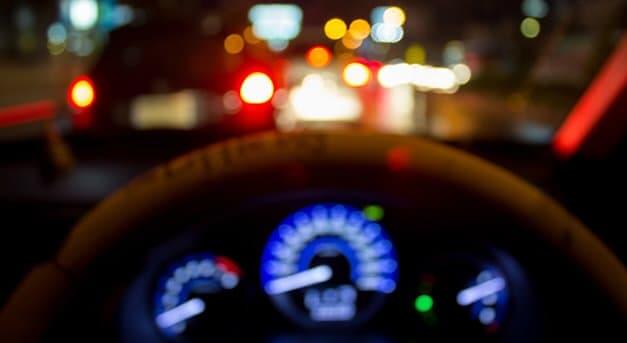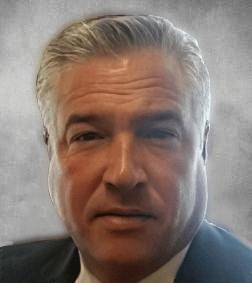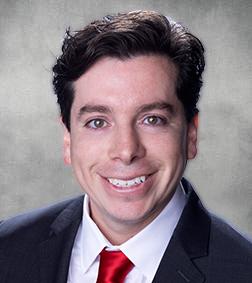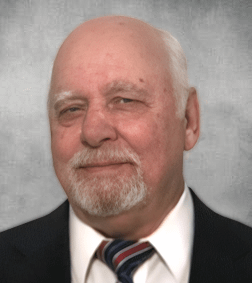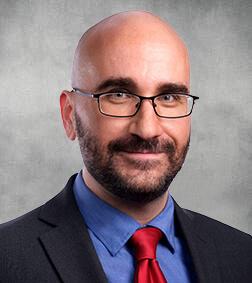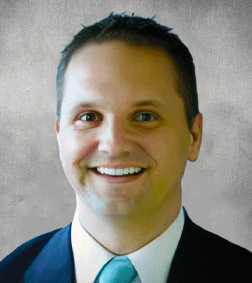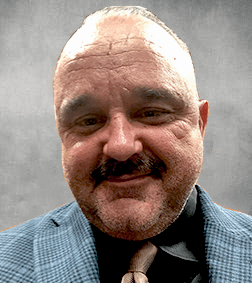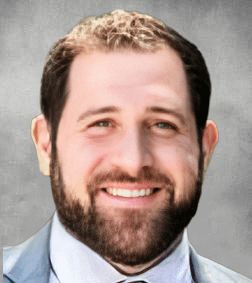Florida DUI Manslaughter Defense Attorneys
Facing DUI Manslaughter charges in Florida places the accused in jeopardy of losing his or her liberty, job, housing, social network, and the ability to drive. A person charged with DUI Manslaughter should not expect to receive any sympathy. Killing another in a motor vehicle crash after drinking alcohol to excess or taking illicit narcotics is not excusable to the general public.
DUI Manslaughter in Florida is a serious offense. Local and state law enforcement officers treat DUI Manslaughter investigations with great care and pay close attention to the slightest details so that the person they believe is responsible for the death cannot escape from criminal liability. The state’s attorneys assigned to prosecute DUI Manslaughter charges vigorously pursue justice on behalf of the person who died and that individual’s family.
Judges who rule on DUI Manslaughter cases have shown that they are prepared to commit the person convicted of DUI Manslaughter in Florida to lengthy prison sentences. These judges will also place harsh terms of probation after the individual earns his or her release from incarceration.
Even though the deck might appear to be stacked against a person charged with DUI Manslaughter, having a seasoned, skilled, and knowledgeable Florida DUI Manslaughter defense lawyer side by the accused is the only way to ensure that all involved in the case experiences justice.
In an adversarial system such as ours, the lawyer representing the accused is the only person upon whom the accused can rely on working for them. Prosecutors have a sworn duty to notify the defense of the existence of potentially exculpatory evidence. They cannot destroy evidence, nor can they fabricate evidence. Prosecutors have to ensure the process is fair, but they are advocates. They will work hard and argue passionately for a conviction and lengthy prison sentence and severe conditions of release.
While the judge listens to the evidence dispassionately, they are not advocating for the defense or for the prosecution for that matter. They are merely referees whose sole purpose is to ensure that the defendant’s rights are vindicated. In other words, the judge must make sure that the process is fair. The judge does not try to tilt the scale toward one side or another.
The Florida DUI Manslaughter attorneys with Musca Law have substantial experience fighting for justice on behalf of their clients who were in a car wreck and charged with DUI Manslaughter. The relentless pursuit of justice for their clients distinguishes Musca Law’s DUI Manslaughter defense lawyers from other attorneys. Call Musca Law today, anytime day or night at (888) 484-5057.
Defend Your Rights with Decades of Collective Experience
Any traffic accident that results in a fatality is a tragic and unfortunate incident for all the parties involved. When DUI charges are involved as well, the penalties skyrocket. Many of our clients who have been arrested for DUI manslaughter are faced with life-altering choices and situations.
If you find yourself in this situation, you will be facing aggressive prosecution that may result in devastating consequences. It is of utmost importance to retain the experience of a skilled Florida DUI manslaughter lawyer from Musca Law to help you defend your name and fight for the best possible outcome on your behalf.
DUI Manslaughter Often Results from a Tragic Accident
When a person is involved in a fatal collision, most of the time, the driver did not intend to harm anyone or even imagine there was a chance that they would cause such destruction. These individuals are often devastated by what transpired. Many times, DUI Manslaughter charges are filed against people who have never been in legal trouble before. These are good people who made a life-altering bad decision that changed everything for them in the blink of an eye. One bad mistake has the ability to destroy a person’s life.
The law effectively treats DUI Manslaughter suspects as though they intended to kill a person. This is, of course, not the case. Anyone suspected of this crime must ensure that their rights are protected throughout the investigation and legal process. It is important to have an experienced criminal defense attorney who knows how to fight these charges and make sure that the police or prosecutors do not ignore the defendant’s legal rights.
Defining DUI in Florida
Florida, like all other states, has a legal limit for a driver’s blood alcohol content, or BAC, of .08 percent alcohol by volume. If a person is caught driving with a higher level of alcohol in their system, then that person will be charged with a DUI, or driving under the influence. Police will file charges even if the driver did not cause any injuries or property damage.
Getting caught driving while under the influence of other drugs, such as marijuana or other street drugs, or even certain prescription drugs will also be charged as a DUI. In the case of drugs, there is no legal limit. It can be challenging for officers to determine whether a drug in the person’s system is causing them any impairment. For example, marijuana stays in a person’s bloodstream long after the psychotropic effects, and any impairment is gone. Still, if police have reason to suspect a person is under the influence, they will try to investigate. In some cases, the presence in a person’s system of a drug taken days ago may be irrelevant because it played no part in the cause of their poor driving and did not cause an accident.
When police suspect a driver of driving under the influence at the time of an injury-producing or fatal crash, the charges and potential sentences increase dramatically.
Defending Against DUI Manslaughter Charges in Florida
Every year, more than 350 people die in drunk driving accidents in Florida. In total, 5,000 accidents involving alcohol occur on the state’s roads annually. While the number of alcohol-related fatal accidents is lower every year, alcohol-related fatal car crashes still account for about 29 percent of all traffic deaths.
In order to combat drunk driving, prosecutors aggressively pursue and file charges against people who commit DUI’s, especially individuals suspected of causing severe vehicle-related injuries while under the influence of alcohol.
If a driver is involved in a crash that costs the life of another individual, that driver will likely face charges of DUI Manslaughter. DUI Manslaughter is a serious criminal charge that can result in long prison terms. Unfortunately, many people who are suspected of committing this crime are either wrongfully accused or possibly guilty of a lesser criminal offense.
Anyone accused of committing a DUI Manslaughter must realize that these charges are extremely serious. In addition to prison time, fines, and probation, a person convicted of this crime can face life-long impacts on their ability to drive or to gain certain types of employment.
Defining DUI Manslaughter under Florida Law
When a prosecutor charges a person with DUI Manslaughter, there are a number of factors that the State must prove in order to turn those charges into a conviction. The elements necessary to prove the crime of DUI Manslaughter are:
- The defendant is caught operating or in control of the relevant vehicle while in Florida;
- The person is under the influence of drugs or alcohol, such that the chemical impacts their abilities to operate a motor vehicle at a normal level of competency;
- That the defendant’s blood alcohol met or exceeded the legal limit of .08 percent alcohol per volume in either a breathalyzer or a blood test;
- That the defendant directly or indirectly caused the death of another human being while meeting the above listed elements.
A person can be considered in control of a vehicle even if they are not driving the vehicle at the given time as long as they are in the position to operate the vehicle. Sitting in the driver’s seat in a running car would, therefore, qualify as being in control of the vehicle.
These charges are serious, but it is important for suspects to understand that there are ways to defend against each of these elements. Defending against these charges will require a seasoned criminal attorney.
Injury-Causing Crashes and DUIs
If a driver causes a car accident while under the influence of drugs or alcohol, and another person suffers injuries, the penalties include a maximum of five years in prison. The defendant will also face a possible $5,000 fine. Prosecutors will try to get the defendant convicted of the harshest sentence possible if the injuries are severe. Of course, the injured person or people may also file a civil lawsuit seeking monetary damages as well.
Sentencing and Penalties for DUI Manslaughter
Depending on the circumstances, as well as whether or not this is a repeat incident, penalties for DUI manslaughter can be incredibly severe. In fact, the minimum prison sentence for a DUI manslaughter conviction is four years.
Felonies in Florida are divided into degrees. The crimes perceived as the most severe will be considered first-degree felonies. A second-degree felony comes with a maximum prison sentence up to twenty years. A person convicted of a first-degree felony can face incarceration in a state penitentiary for a maximum of 30 years. Some crimes also come with mandatory minimum sentences. If a mandatory minimum sentence is included in the statute, this means that anyone convicted of the crime as defined by Florida law will face at least that minimum sentence. No set of circumstances will allow the court to make a downward deviation.
DUI Manslaughter comes with a mandatory minimum sentence of four years in prison. Anyone convicted of DUI Manslaughter, even if it is their first-ever criminal offense, will receive a minimum four-year sentence. Individuals convicted of multiple crimes may face additional penalties.
When a person is convicted of DUI Manslaughter as a second-degree felony, he or she will receive a minimum of four and a maximum of fifteen years in prison and must pay a fine in the amount of $10,000. This crime comes with the possibility of fifteen-years’ probation as well. Other penalties include mandatory community service, needing to attend a DUI alcohol or substance abuse course, the impoundment of their vehicle, and possible psychological evaluations and treatment for substance abuse.
In many cases, a person involved in an accident while under the influence may panic and flee the scene. Fleeing the scene of an accident is a criminal act in itself, even if the only damage is to property, and the driver is not under the influence. In situations where a person leaves the scene of a DUI Manslaughter accident, prosecutors will likely try the person with a first-degree felony. The defendant will, therefore, face a maximum of 30 years behind bars, in addition to a $10,000 fine, probation, substance abuse courses, evaluations, and community service.
In the state of Florida, basic DUI manslaughter penalties are as follows:
- DUI Manslaughter: This is considered a Second Degree Felony and is punishable by a maximum $10,000 fine and a maximum 15 year imprisonment.
- DUI Manslaughter/Leaving the Scene: If a driver is convicted of DUI manslaughter who knew or should have reasonably known that an accident took place and refused or failed to release information or lend help in the situation, he or she may be guilty of a First Degree Felony. This carries a maximum fine of $10,000 and a maximum of 30 years in prison.
Additionally, a DUI manslaughter conviction may result in lost driving privileges or a criminal conviction that can't be expunged from your criminal record.
DUI Manslaughter Long-Lasting and Far-Reaching Consequences
The sentence the prosecutor seeks in a DUI Manslaughter case will depend on specific facts of the case. In the worse set of facts, the driver could face a maximum prison sentence of 30 years. However, the consequences are not limited to prison time and fines.
When a person is convicted of DUI Manslaughter, that felony will remain on their permanent record. These individuals may lose their driving privileges for long periods of time, impacting their independence and employability long after they completed their time in prison. Convicts could lose their jobs and livelihoods, and their right to vote. Those convicted will be unable to work for the government or to receive certain aid and benefits provided by the government. Of course, there will also be a stigma attached to the fact that the person is a convicted felon. This can impact personal relationships and leave the individual feeling alone and isolated by their community.
When it comes to defending against DUI Manslaughter charges, the stakes are high. Suspects need to find an attorney who can aggressively represent them and ensure that the case made against them is done properly without any of the accused’s rights being violated. Many defendants tried for DUI Manslaughter are not hardened criminals, and yet, this is often how the law will treat these individuals. Having a strong advocate is imperative.
How to Obtain a Hardship License in Florida After a DUI Manslaughter Conviction
A conviction for a DUI Manslaughter conviction in Florida requires the state to revoke the convicted person's rights to drive permanently. The state does allow people who have lost their driver’s licenses after a DUI Manslaughter conviction to apply for a hardship license.
A hardship license is a conditional restoration of the person’s driving privileges. The state will not automatically issue a hardship license to every applicant. The state makes sure that the person is no longer a threat while driving. Additionally, the state does what it can to ensure that a person holding a hardship will not drink and drive ever again.
The conditions imposed by the state are:
- Not drive for the five years preceding the application;
- Remained abstinent from alcohol and drugs for the five years preceding the application;
- No arrests for driving on a revoked license or for drug offenses within the five years before applying;
- Installing, maintaining, and paying for an ignition interlock device in every vehicle driven by the convicted person for at least two years; and
- The applicant must complete the DUI educational program, submit to testing as directed by the DUI program, remain supervised under the auspices of the DUI program for the entire hardship period, and subject to testing for alcohol and drugs as directed by the DUI program. Any failure to satisfy these conditions will authorize the revocation of the applicant's hardship license.
Preserving Evidence Favorable to the Defense in Florida DUI Manslaughter Cases
Musca Law’s Florida DUI Manslaughter defense attorneys have a well-earned reputation as aggressive advocates who obtain favorable results for their clients. Aggressive advocacy means more than yelling at a witness under cross-examination or screaming passionately while arguing a point to the judge. Aggressive advocacy is a philosophy of working tirelessly to defend a person’s constitutional rights from the moment a client engages the firm.
Engaging Musca Law’s Florida DUI Manslaughter defense lawyers during an investigation or immediately after an arrest will help preserve valuable evidence to the defense. Evidence left behind by a car crash does not remain for very long after the crash. However, Musca Law’s DUI Manslaughter defense attorneys understand the inherent value of getting out to the scene of the crash as rapidly as possible in the aftermath of a crash. Observing the scene soon after the crash helps Musca Law’s attorneys better comprehend the scope of the scene, the position of the vehicles, and observe marks that could remain on the road such as yawl marks, skid marks, and gouge marks.
Musca Law’s team of experts will analyze the evidence collected at the scene by the police and the defense team as well. Defense experts are an invaluable part of Musca Law’s defense team in most cases. Experts like crash analysts help Musca Law’s attorneys understand the significance of the evidence, which will help them controvert the conclusions offered by law enforcement experts. Defense experts help the jury understand the full context of the evidence so they can have a complete picture of what happened leading up to and in the aftermath of the crash. Otherwise, the jury gets a one-sided presentation of evidence that might invite drawing the wrong inferences and finding someone guilty because they just assumed the so-called “experts” offered by the prosecution were correct.
Musca Law’s philosophy of aggressive defense extends to more than retaining expert witnesses. Musca Law’s DUI Manslaughter defense attorneys advocate for their clients by:
- Appearing with our clients at police interrogations;
- Collecting and analyzing medical records of accident victims;
- Photographing the vehicles involved in the crash as well as the evidence scene;
- Interview witnesses who have spoken with law enforcement investigators or searching for witnesses the police might have missed; and
- Attempting to locate surveillance videos not seized by police.
Relevant Statutes for DUI Manslaughter
Florida’s criminal code defines charges to ensure that the prosecution must prove certain factors in order to convict a person of any given crime. The statutes are intended to encourage fairness by making the factors as clear as possible so that they will apply in each case.
Section 316.193(3)(c)(3) states that DUI Manslaughter charges will only apply if the defendant drove a vehicle under the influence of drugs and/or alcohol, and as a result, caused the death of another human being.
The statute also includes definitions about who is considered a human being. Any person or any age will qualify, but according to Florida law, an “unborn quick child” is also considered a person. A “quick” child is an unborn baby that could have survived outside of the womb at the time when the collision caused their death.
Under Section 316.193(3)(c)(3), DUI Manslaughter is defined as a second-degree felony, the sentencing for which is stated under sections 775.082-775.084. The crime is a second-degree felony unless there are additional circumstances that make the crime more severe. Section 316.062 states that fleeing the scene of a deadly crash or failing to render the necessary aid to the victim or to provide their information will upgrade a crime to a first-degree felony.
Failing to Render Aid
When a person is involved in a collision while under the influence and fails to provide aid or their information, then the prosecutors can and will upgrade the crime. Leaving the scene of a crash is illegal, but the law does not just require that a person remains at the scene, it also dictates that a person must provide any aid he or she is reasonably capable of providing to the injured persons.
If a person is involved in a crash, it is not enough to just sit in their vehicle and wait for someone to call the police and for officers and emergency medical providers to arrive. Depending on the circumstances and what is possible, the person may be obligated to call the police to check on the other people involved in the crash or to provide their information to surviving victims.
All of this is limited by what is reasonably possible. If the victim’s location would be too dangerous to approach, the law does not require acts of heroism.
Determining Sentencing for those Convicted
The criminal statutes only give the minimum and maximum sentencing requirements. The judge is tasked with determining the actual sentence within the two ends of the spectrum. The sentence is intended to meet certain objectives, including punishment, retribution, and deterrence. Many factors will impact the ultimate sentence. The court may be under pressure from the victim’s family to seek the maximum sentence. If the case is “high profile,” media coverage may lead to the court not wanting to be criticized for letting the defendant off easy. If the defendant has a long criminal history, the judge will take this past into account and may lean towards a harsher sentence. The facts of the actual case might be favorable or unfavorable to the defendant, depending on how wrongful their behavior is considered. Of course, the skill and experience of the defendant’s attorney can also impact the ultimate sentence.
Florida tries to impose some level of consistency when it comes to sentencing throughout the state. The Florida Department of Corrections provides judges with guidelines intended to keep the sentences fair. The crime is categorized as a second-degree felony and a level eight offense out of a maximum of ten levels, ten being the most severe. The guidelines include a point system and equations. The crime of DUI Manslaughter itself comes with a score of 74 points. Points may be added for the person’s criminal history, or for the defendant’s failure to abide by court dates. Certain mitigating circumstances may subtract from the equation, as well. The judge must follow the guidelines and cannot hand out arbitrary sentences.
Defending Against the Charges
Any crime will have potential defenses. The state must prove each of the elements beyond a reasonable doubt. It is unlikely that there will be room to dispute that the accident caused the death of the victim, but the other elements may be argued against. The defendant may argue against the factual allegations, including that he or she had control over the vehicle or that he or she was under the influence. Factual disputes will depend on specific events.
There are also evidentiary defenses to DUI Manslaughter charges. Some of the possible defenses include:
Improperly Conducted Field Sobriety Tests: When police believe a person is under the influence of drugs or alcohol, there are specific tests that must be conducted. It is possible that the defendant has a disability that makes it difficult for him or her to perform the tests properly. The officer may also fail to account for the person’s baseline coordination when checking if he or she was impaired. Coordination levels vary greatly among individuals. The officer may also not be properly qualified to perform the tests or might have made errors while administering the tests.
Breathalyzer Results Not Admissible: Breathalyzer machines are not particularly reliable. There are strict regulations for maintaining these machines. Failing to abide by the maintenance and calibration requirements can invalidate the results of the test.
Inadequate Probable Cause: Officers must have probable cause that the person is under the influence before performing sobriety tests. If the officer cannot show that he or she had sufficient reason to believe the person was drunk or on drugs, then the arrest will not be considered legal, and the evidence may be excluded from any trial.
Failure to Read Miranda Rights: Miranda rights must be read verbatim to the suspect. Failure to follow this procedure will mean that the defendant’s statement to the officers can be suppressed.
Failure to Obtain Warrant for Blood Tests: Officers cannot take blood tests without either the suspect’s consent or a valid warrant. If the police performed this test without consent or a warrant, the results might be excluded.
Developing a defense strategy will depend on facts specific to the case at hand. By hiring an experienced defense attorney, a suspect can ensure that all possible avenues for defending against the charges are explored.
We are Available 24/7 to Take Your Calls. Contact Us Today!
Protect your rights and fight for your best interests with the help of a Florida DUI manslaughter attorney from Musca Law. With decades of collective experience, our firm can handle a wide variety of charges. We take the time to get to know our clients and to understand their case. This enables us to provide an accurate, effective defense of their rights while exploiting the weaknesses in the prosecution's case.

